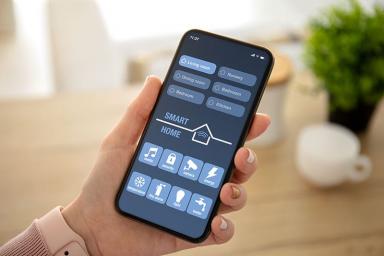Why are advanced heating controls are not mandatory?

Advanced heating controls, by which we mean load and weather compensation controls, are the most efficient controls you can pair with your boiler. To be clear, a smart control is not necessarily an advanced control. In 2018 additional regulations were introduced to pair an 'advanced energy saving measure' with a new combi boiler. However the effectiveness of this requirement, originally to just fit a load or weather compensation control, was watered down to include a less efficient form of heating control and flue gas recovery units, which are even less efficient.
What is Boiler Plus? How does it relate to my boiler?
Boiler Plus attempted to improve the minimum efficiency standard of gas boilers by requiring an 'advanced energy saving measure' with all new combi boilers. The legislation requires an advanced heating control (which we consider to be load or weather compensation controls), a more basic control or a flue gas recovery unit to be fitted with new combi boilers and only time and temperature controls to be fitted with new system and heat only boilers.
Under the regulations, heating controls for combi boilers are split into three groups - load compensation, weather compensation and automation and optimisation controls. Load and weather compensation controls can deliver the highest efficiencies, but only if they speak the same language as your boiler.
When does it apply?
The requirement for an advanced energy saving measure varies according to boiler type, as follows:
New installations of a combi boiler:
require a programmable room thermostat with an ‘advanced’ energy saving feature, i.e. weather compensation, load compensation, smart controls that combine automation and optimisation features or a flue gas recovery unit.
New installations of a heat only or system boiler:
require a programmable room thermostat or a thermostat with separate programmer. You can still opt to install an advanced control and we guide you compatibility.
Existing boiler installations:
have no minimum requirement for heating controls. You can replace your room thermostat with another room thermostat and nothing more. Again you can opt for an advanced control or may wish to have the functionality of an internet control.
Boiler Plus advanced energy saving measures:
1) Weather compensation controls
Weather compensation controls adjust the kW output of the boiler and the flow temperature of the water based on the outside weather temperature. The more closely the output of the boiler is matched to your demand, and the lower the flow temperature, the more efficiently the boiler operates. This can be done manually on the front of a combi boiler or automatically via a weather compensation control (or load compensation - see below).
Weather compensation controls can work with compatible ‘modulating’ boilers. A modulating boiler operates between a range of outputs, for example between 5kW and 18kW. The thermostat adjusts the boiler’s output up or down as weather conditions change. This ‘advance warning’ allows the boiler to make small adjustments to its output in order to meet the heat demand as efficiently as possible.
The outside temperature is either obtained via an externally fitted probe or via the local weather station. Temperature data from a weather station will be less accurate than a probe fitted to the outside of the house. For this reason weather station compensation thermostats tend to work in conjunction with load compensation technology.
2) Load compensation controls
Load compensation works in the same way as weather compensation, but instead uses the difference between the internal room temperature and the desired room temperature to control the boiler’s output to close the gap and reduce the flow temperature needed to the radiators. Load compensation can work with compatible modulating boilers.
For compensation controls to work the heating control and boiler must be able to communicate in a common language – see our Ensuring Compatibility section below.
3) Smart controls featuring automation and optimisation functions
Weather and load compensation vary the boiler’s output to use as little gas as is absolutely necessary to meet the desired room temperature. Smart controls, for the purposes of Boiler Plus, use AI to automate the time and temperature settings based on occupancy detection, geofencing and/or stored data from user patterns over time. Smart controls work on a learned schedule of use and how quickly your home loses or gains heat. Over time the control will know how early the boiler will need to come on to meet the set temperature operating in its most efficient condensing mode.
4) Flue gas recovery unit
A little used measure that can recover at 3% of lost heat, which is low compared to measures 1 and 2 which can recover 12% of lost heat (BEAMA study).
Ensuring compatibility
Weather and load compensation controls need to use the same ‘language’ as the boiler in order to operate, this is referred to as the ‘communication protocol’.
In a recent study from the BRE, it was reported that of 28 compensating heating controls reviewed, 74% used a language unique to the boiler manufacturer, i.e. only the boiler manufacturer’s compensation controls would work with their boilers. 26% used ‘Opentherm’. Opentherm is a common language used my different boiler and control manufacturers to make their products compatible.
What does this mean for consumers? It means that the number of compensation control products that will work with a specific boiler is limited. You will need to choose either the boiler brand’s own control, choose an Opentherm control and an Opentherm boiler or opt for smart controls with automation and optimisation functions.
Correct installation
As well as selecting a compatible control, the installer needs to wire it in to the correct terminals inside the boiler. If the advanced control is wired into the on/off terminals, as most standard thermostats are, then it will only be able to switch the boiler on and off in a basic way and not adjust the kW output or the flow temperature automatically.
The missed opportunities:
Not only is it still possible to fit on/off controls, the most basic form of heating control, to a new combi boiler, the opportunity to include the 9 million homes with a hot water cylinder in these efficiency improvements has been completed missed. Most homes that have a hot water cylinder will have a condensing boiler that never condenses, as it has not been set up to run with advanced controls. Studies have found that boilers are just 75-85% efficient in the home and this will be a result of poor set up and basic controls.

